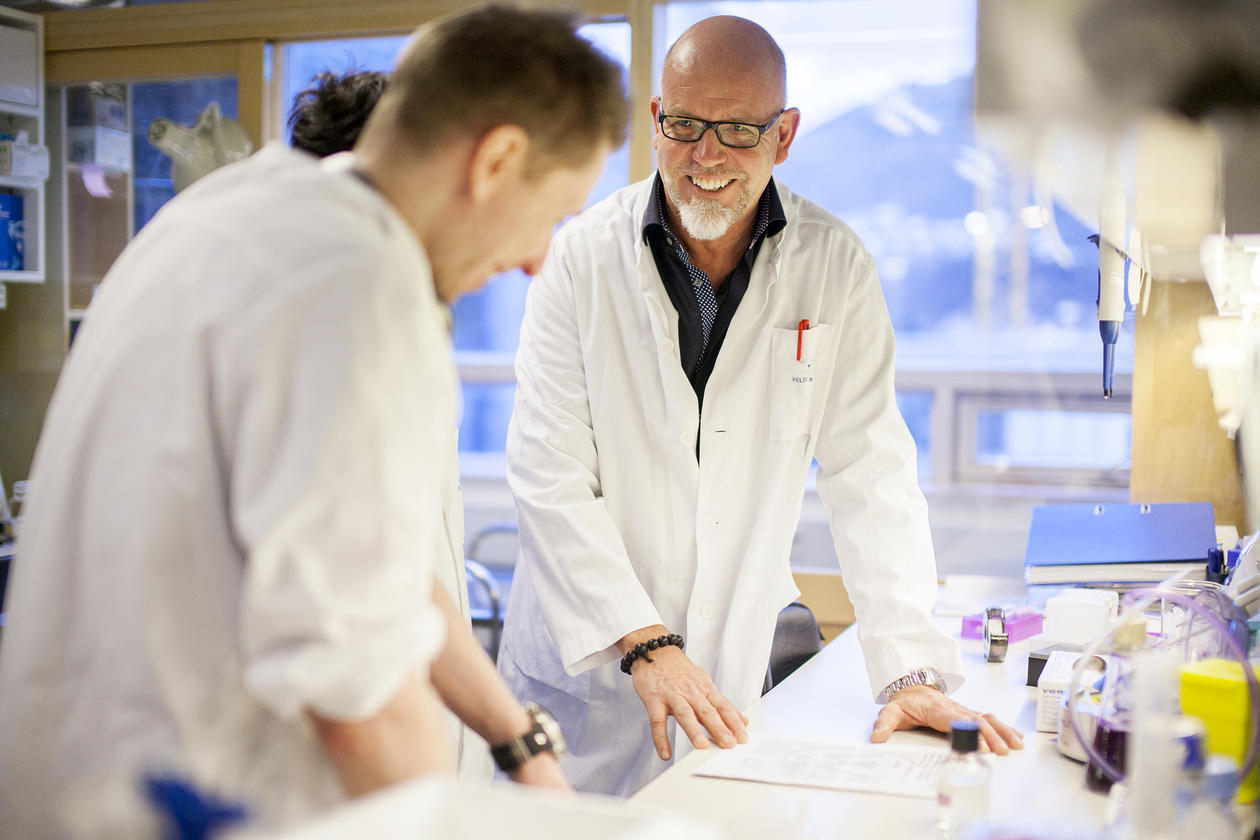Matrix Biology
Professor Donald Gullberg has his background in medical chemistry from Uppsala University, and has been working on collagen receptors and integrin biology. He was recruited to the University of Bergen in 2004 and is directing the Matrix Biology Group at the Department of Biomedicine.

Main content
Research focus
The research of the Gullberg group is focused on work related to integrin α11. The CCBIO projects deal with understanding the role of integrin α11 at the molecular and cellular levels in order to ultimately reach a better understanding of its role in the tumor stroma.
Subprojects
1. In one project, the group has developed a new fibroblast specific transgenic mouse strain where Crerecombinase is driven by a human integrin α11 promoter (ITGA11-Cre strain). The first study presenting this novel mouse strain was published in 2020 in Matrix Biology Plus (Alam J. et al., Matrix Biol. Plus, 2020). The Cre mouse strain has now been bred with a tdTomato strain for direct visualization of ITGA11 expression.
2. A second project relates to the role of integrin α11 in skin squamous cell carcinoma (SCC), performed in collaboration with Ritva Heljasvaara from the University of Oulu. Focus is on the role of dermal stroma in a mouse model of SCC using the mouse strain deficient in integrin α11. The first results were published in 2022.
3. A third project relates to epitope mapping of integrin α11 mAbs. The group has finished epitope mapping of mAb 210F4 and is in the final stages of mapping epitopes of the function blocking antibody 203E1. This project is supported by a PhD student financed by the Medical Faculty and a NCS supported researcher, Cédric Zeltz, who started in 2022.
Important results
Establishing the ITGA11-Cre mouse strain was a major milestone in the group’s work after 10 years of focused efforts on this project. The further breeding into a fluorescent reporter strain will be another step forward. The detailed epitope mapping of mAb 210F4 and mAb 203E1 to a few amino acids also illustrates the importance of consistent work spanning several years to reach long-lasting and wellcited results.
Future plans
The overall goal is to continue characterization of integrin α11 to evaluate its potential as a therapeutic target in fibrotic conditions including the tumor stroma. In specific:
1. In collaboration with Ritva Heljasvaara, the group has crossed the ITGA11-Cre mouse strain with a double-fluorescent strain enabling direct visualization of the dynamic α11 expression in tissues and tumor stroma without fixation or other treatments. A set of detailed experiments are now planned to characterize the cells derived from this mouse strain.
2. For the function blocking α11 mAb 203E1 antibody, the group continues to characterize the epitope profile although they have mapped epitopes to a few amino acids in a loop structure of the calf-2 domain. Since the antibody has been sequenced, the group would like to humanize it, and resources will be applied for. On a collaborative basis, crystallization of the Fab fragments of mAb 203E1 with recombinant α11β1 will be performed.
PubMed Publications
Find Gullberg's PubMed publication list here.
